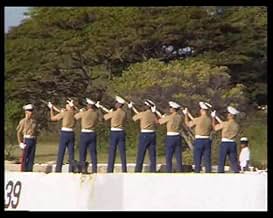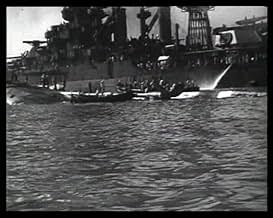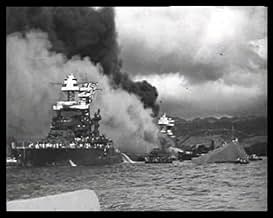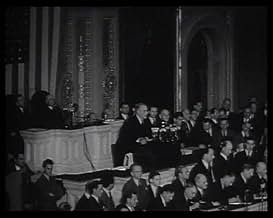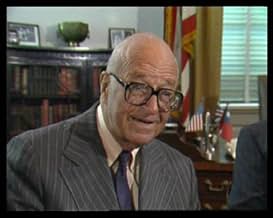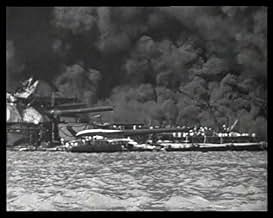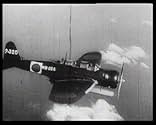U.S.A.
- Épisode diffusé le 17 oct. 1989
NOTE IMDb
8,0/10
5
MA NOTE
Ajouter une intrigue dans votre langueIn this program, Charles Wheeler spotlights the United States of America.In this program, Charles Wheeler spotlights the United States of America.In this program, Charles Wheeler spotlights the United States of America.
Neville Chamberlain
- Self
- (images d'archives)
Winston Churchill
- Self
- (images d'archives)
Adolf Hitler
- Self
- (images d'archives)
Herbert Hoover
- Self
- (images d'archives)
Hiram Johnson
- Self - Senator, California
- (images d'archives)
Charles A. Lindbergh
- Self
- (images d'archives)
Gerald P. Nye
- Self - Senator, Republican, North Dakota, 1925-1945
- (images d'archives)
- (as Gerald Nye)
Quentin Reynolds
- Self - Commentator, War Correspondent, Collier's Weekly
- (images d'archives)
Histoire
Le saviez-vous
- ConnexionsFeatures À l'Ouest rien de nouveau (1930)
Commentaire à la une
Much of this is familiar to anyone with the slightest interest in history, yet it brings a fresh perspective to American attitudes towards war in the years leading up to the Japanese attack at Pearl Harbor and the subsequent declarations of war by Germany and Italy. We already know that the US was isolationist at the time but I've never seen a better explanation for it.
At the end of World War I, Woodrow Wilson was welcomed at the peace conference as a "peace maker" but his suggestions were ignored both by the European nations and by Americans, and the conditions that followed provided the springboard for the second war.
Roosevelt took office in 1933 and the country was deep in the grip of the Great Depression. There were no safety nets at the time -- no Social Security, no Medicare, no unemployment benefits. People lost their homes and survived on charities. FDR saw his first responsibilities as domestic.
A few years later, the economy was improving but Europe was now in a war that most Americans were in no mood to join. The general feeling was, as the expression went, we had pulled Europe's chestnuts out of the fire twenty years ago and gained nothing. Let them take care of it themselves. A well-funded America First movement pressed this sentiment home in advertisements and propaganda movies.
Roosevelt was sympathetic to Britain -- which now stood alone against the Axis powers, and he did what he could to help but the opposition was firm. It gradually waned when correspondents in London, like Quentin Reynolds and Edgar R. Murrow, broadcast the devastation wrought by the Blitz. The nation was also shocked at what the Japanese did to the Chinese after their invasion of China.
Pearl Harbor brought and end to the arguments and unified the country.
The program lacks reenactors, thank God, but includes interviews with participants. There are still photos of the depression families in the Midwest and the cities and a good deal of newsreel footage from the period, including excerpts from Roosevelt's speeches.
There's no bias that I could see, just a candid description of events as they occurred. It's a decent episode about a time that's rapidly disappearing down the memory hole.
At the end of World War I, Woodrow Wilson was welcomed at the peace conference as a "peace maker" but his suggestions were ignored both by the European nations and by Americans, and the conditions that followed provided the springboard for the second war.
Roosevelt took office in 1933 and the country was deep in the grip of the Great Depression. There were no safety nets at the time -- no Social Security, no Medicare, no unemployment benefits. People lost their homes and survived on charities. FDR saw his first responsibilities as domestic.
A few years later, the economy was improving but Europe was now in a war that most Americans were in no mood to join. The general feeling was, as the expression went, we had pulled Europe's chestnuts out of the fire twenty years ago and gained nothing. Let them take care of it themselves. A well-funded America First movement pressed this sentiment home in advertisements and propaganda movies.
Roosevelt was sympathetic to Britain -- which now stood alone against the Axis powers, and he did what he could to help but the opposition was firm. It gradually waned when correspondents in London, like Quentin Reynolds and Edgar R. Murrow, broadcast the devastation wrought by the Blitz. The nation was also shocked at what the Japanese did to the Chinese after their invasion of China.
Pearl Harbor brought and end to the arguments and unified the country.
The program lacks reenactors, thank God, but includes interviews with participants. There are still photos of the depression families in the Midwest and the cities and a good deal of newsreel footage from the period, including excerpts from Roosevelt's speeches.
There's no bias that I could see, just a candid description of events as they occurred. It's a decent episode about a time that's rapidly disappearing down the memory hole.
- rmax304823
- 16 mai 2016
- Permalien
Meilleurs choix
Connectez-vous pour évaluer et suivre la liste de favoris afin de recevoir des recommandations personnalisées
Détails
- Couleur
Contribuer à cette page
Suggérer une modification ou ajouter du contenu manquant


